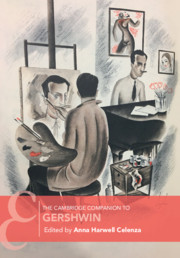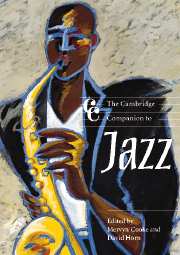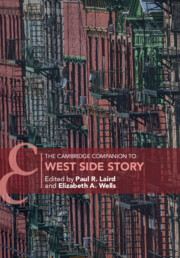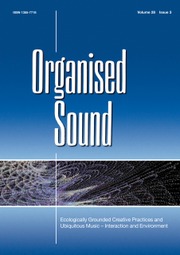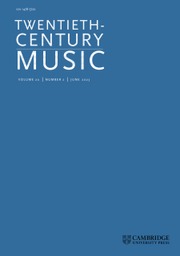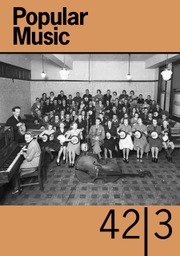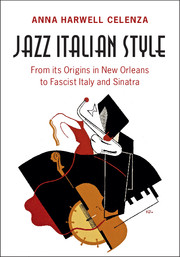The Cambridge Companion to Gershwin
George Gershwin is often described as a quintessentially American composer. This Cambridge Companion explains why, engaging with the ways in which his music was shaped by American political, intellectual, cultural and business interests. As a composer and performer, Gershwin embraced technological advances and broke new ground in music business practices. In the decades preceding World War II, he captured the mechanistic pulse of modern life with his concert works and lay the groundwork for the Great American Songbook with his Broadway shows and film music. With his brother Ira, and his cousins Henry and B. A. Botkin, Gershwin explored various ethnic and cultural identities and contemplated their roles in US culture. His music confronted race during the Jim Crow era and continues to engage with issues of race today. This interdisciplinary exploration of Gershwin's life and music describes his avowed pursuit of an 'American' musical identity and its ongoing legacy.
- Illuminates the links between Gershwin's talents in the realms of composition, performance and the music industry
- Discusses Gershwin's life and musical works in an interdisciplinary context, addressing how issues such as technology, politics, economics, business and immigration practices influenced the origins and development of his music
- Demonstrates the continued relevance of George Gershwin and his music to contemporary society
- Describes George Gershwin's involvement in the development of folk studies in 1930s America
Reviews & endorsements
'… a worthwhile addition to the ever-growing body of Gershwin studies.' Andrew Farach-Colton, Gramophone
'To know where we are with Gershwin now, clearly, one should go with the Cambridge Companion.' Russell Davies, The Times Literary Supplement
'Equally at home in the concert hall or on Broadway and, later, with movies and popular music, George Gershwin (1898–1937) was a crossover artist before that term was commonly used. He continues to grab the attention of a diverse array of musicologists, and many of today’s noted Gershwin experts are represented in the pages of this contribution to the ‘Cambridge Companions to Music’ series. The breadth of the writings in this volume illustrates how widely Gershwin’s accomplishments are spread.' J. Farrington, Choice
‘In this rich cornucopia of essays about Gershwin’s life, work, and continuing legacy, the authors individually and collectively bring new appreciations to an extraordinary multi-faceted musical career. Whether read as single chapters or cover to cover, this book is a joy.’ William A. Everett, University of Missouri-Kansas City Conservatory
Product details
October 2019Hardback
9781108423533
332 pages
253 × 178 × 19 mm
0.8kg
5 b/w illus. 9 music examples
Available
Table of Contents
- Part I. Historical Context:
- 1. The unlikely patriarch Michael Owen
- 2. Hearing Gershwin's New York Ellen Noonan
- 3. Gershwin's musical education Susan Neimoyer
- 4. Gershwin in Hollywood Jessica Getman
- Part II. Profiles of the Music:
- 5. Blue Monday and New York theatrical aesthetics Kristen M. Turner
- 6. Broadway in blue: Gershwin's musical theatre scores and songs Todd Decker
- 7. The works for piano and orchestra Timothy Freeze
- 8. Harmonizing music and money: Gershwin's economic strategies from 'Swanee' to An American in Paris Mark Clague
- 9. Exploring new worlds: An American in Paris, Cuban Overture and Porgy and Bess Anna Harwell Celenza
- 10. Complexities in Gershwin's Porgy and Bess: historical and performing contexts Naomi André
- 11. Writing for the big screen: Shall We Dance and A Damsel in Distress Nathan Platte
- Part III. Influence and Reception:
- 12. The coverage of Gershwin in music history text Howard Pollack
- 13. When Ella Fitzgerald sang Gershwin: a chapter from the Great American Songbook Will Friedwald
- 14. The afterlife of Rhapsody in Blue Ryan Raul Bañagale
- 15. Broadway's 'new' Gershwin musicals: romance, jazz, and the ghost of Fred Astaire Todd Decker
- 16. Gershwin and instrumental jazz Nate Sloan
- Epilogue: the Gershwin I knew, and the Gershwin I know Michael Feinstein.

